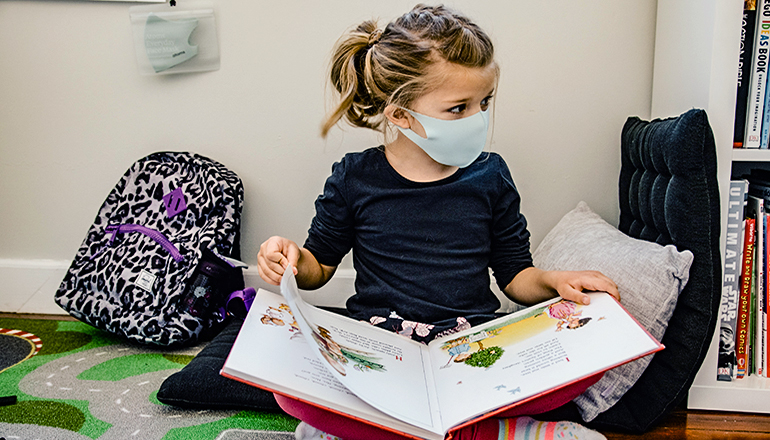(Missouri Independent) – Monday marks the first day of school for thousands of students across Missouri and it’s also when schools can begin enrolling in a new federally-funded testing program aimed at helping facilitate a safe return to the classroom.
The Department of Health and Senior Services announced Friday evening that Ginkgo Bioworks, Inc., a Boston, Massachusetts-based biotechnology company, had been chosen to operate and run a COVID-19 testing program backed by millions in federal funds.
The state had still not finalized a vendor as of last Wednesday, leaving it unclear if the program would be up and running by the time many students began classes this week.
Missouri was awarded nearly $185 million in federal funds to support the program’s implementation. Overall, $10 billion was included in the American Rescue Plan passed by Congress and signed by President Joe Biden in March to support screening testing programs in K-12 schools.
The contract with Ginko Bioworks is in place through Jan. 31, 2022, and will cost an estimated $77 million of federal funds, Lisa Cox, a spokeswoman for DHSS, said Monday.
A DHSS spokeswoman previously said the state planned to establish an emergency contract with a company to operate the program for its first six months, while it simultaneously solicits bids for a contractor to operate the program from February 2022 through July 2022.
The company’s “Concentric by Ginkgo” program will provide training, testing materials, staff, data entry, and lab services. It has already been piloted in Missouri and the company is immediately accepting sign-ups from interested schools, according to Friday’s news release.
Pooled testing allows participating students, staff, and teachers to submit to regular polymerase chain reaction testing — regardless if they are experiencing COVID symptoms — as a means to help schools identify positive cases early. Then, those tests are processed as a batch by a lab, rather than individually. If the result is positive, then each person can be tested individually to identify the positive case.
Examples of its use include testing a classroom as a cohort, regular testing of children under 12 years old who aren’t yet eligible to take Pfizer’s vaccine or helping facilitate safe participation in extracurriculars like sports or band.
A copy of the state’s contract with Ginko Bioworks provided to The Independent, outlines that the test and processing of pooled tests will cost $150 per pool. Genomic sequencing of pooled samples will cost $200 per successfully sequenced sample, rapid antigen test kits will cost $14.75 each, PCR tests will cost $82 each and the company may also charge for health professionals and support staff.
The contract stipulates that test results should be provided to schools within two days from when samples are picked up. It also notes that if schools choose to use antigen tests as a means of follow-up testing, antigen test kits won’t be provided as part of the supplied materials.
Since pooled tests don’t provide results for individuals, the test results aren’t reported to public health authorities, according to the company’s website, and the pooled results will be shared with individuals the schools direct the company too.
The company’s pooled testing approach can bring the cost down to as low as $6.00 per student and can test up to 25 people at one time, according to its website.
Ginkgo Bioworks has launched school testing programs in Pennsylvania, Arizona, Maine, and other states. According to its website, the company has 82 labs within its network and 1,027 schools signed up nationwide to test, as of the week of August 16.
It remains to be seen how many schools will ultimately opt-in to the program that is being offered to public, private, and charter schools. DHSS said earlier this month 19 institutions had expressed interest. Districts told The Independent last week that they were waiting on more details from the state before weighing whether to apply. In the meantime, some had moved forward with their own testing plans.
Top health and education officials pointed to the screening testing program as an instrumental tool that will increase the safety of in-person learning and help families feel more confident doing so.
“After this past school year, students and families are ready to get back to full in-person school and all the extra-curricular, support services, and socializing that entails,” Margie Vandeven, the commissioner of education, said in a statement Friday. “This regular testing is one more strategy to help keep our students safe and our school doors open.”
(Photo by Kelly Sikkema on Unsplash)







